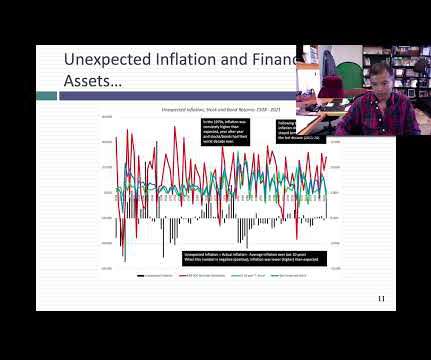Cybersecurity increasingly on audit committee agendas
CFO Dive
JANUARY 26, 2022
To the extent CFOs support the committees, they could be called on to help find experts to join, or present to, members who are tasked with preventing a damaging breach.

CFO Dive
JANUARY 26, 2022
To the extent CFOs support the committees, they could be called on to help find experts to join, or present to, members who are tasked with preventing a damaging breach.

Generation CFO
JANUARY 28, 2022
Successful businesses need a culture of making it happen, says James Owen, Kantar’s Profiles division Global CFO. “Too often I’ve seen that people prefer to find excuses or historical reasons why something hasn’t happened.”. Instead, James suggests: “The real skill comes in when the team can reframe the question in the first place and ask ‘how can we make this happen together’ or look at what needs to be true to bring the idea to fruition.”.
This site is protected by reCAPTCHA and the Google Privacy Policy and Terms of Service apply.

CFA Institute
JANUARY 28, 2022
The inherent conflict between the "E," the "S," and the "G" in ESG investing can no longer be ignored.

Navigator SAP
JANUARY 28, 2022
If you’ve reached a point in your business where you’re looking to improve productivity, find cost savings, and unlock new growth opportunities, your research has likely led you to reports of other organizations using an enterprise resource planning (ERP) system to achieve those kinds of goals.

Speaker: Frank Taliano
Document-heavy workflows slow down productivity, bury institutional knowledge, and drain resources. But with the right AI implementation, these inefficiencies become opportunities for transformation. So how do you identify where to start and how to succeed? Learn how to develop a clear, practical roadmap for leveraging AI to streamline processes, automate knowledge work, and unlock real operational gains.

CFO Dive
JANUARY 28, 2022
Although the pandemic revealed the costs of relying on a global supply chain, companies that bring production home may face a big tax bill.
Corporate Finance Brief brings together the best content for corporate finance professionals from the widest variety of industry thought leaders.

Private Funds CFO
JANUARY 28, 2022
In the magazine: CFOs offer their advice on what you need to look out for in the new era of inflation; Private equity compensation survey findings; The future of ESG-linked loans; What CFOs can learn from chipmakers; Plus much more….

Navigator SAP
JANUARY 26, 2022
Daily business decisions can be as low-stakes as prioritizing your email inbox or as momentous as deciding on a strategic acquisition. Your choices can lead to solutions to the problems your company faces—or to regrets and harsh consequences. Although you can’t necessarily prevent every mistake, incorrect choices are often the result of poor research and a lack of insight into and understanding of the details of your business.

CFO Dive
JANUARY 26, 2022
Rising price pressures have pushed inflation toward the top of agenda items during earnings calls, prompting some needed changes in tactics by CFOs.

Generation CFO
JANUARY 24, 2022
Transforming an organisation is not always easy. However, one thing that consistently eases the process is having the right culture. I think many would agree that culture is king in finance transformation – it can really be make or break for enacting change. This concept is the topic of episode three, Importance of transformative culture, from the podcast series Transformational journeys.

Speaker: Claire Grosjean
Finance teams are drowning in data—but is it actually helping them spend smarter? Without the right approach, excess spending, inefficiencies, and missed opportunities continue to drain profitability. While analytics offers powerful insights, financial intelligence requires more than just numbers—it takes the right blend of automation, strategy, and human expertise.

Private Funds CFO
JANUARY 27, 2022
Second-ever risk alert rings alarms over accurate disclosures, advertising, books-and-records, due diligence and hedge clauses.

Navigator SAP
JANUARY 25, 2022
Modern biotechnology has enabled individuals and companies in the pharmaceutical industry to create breakthrough products and equipment for combating devastating and uncommon diseases, reducing environmental footprints, feeding hungry populations, and promoting safer, cleaner, and effective industrial processes. However, before these products and technologies are released to the market for use by consumers, they must be taken through the biotech FDA approval process to ensure their safety.

CFO Dive
JANUARY 25, 2022
Companies lack the expertise and consistent metrics for satisfying growing investor demand for sustainable operations.

Jedox Finance
JANUARY 27, 2022
It’s a familiar situation… You set up a quick meeting with your team to get the quarterly report ready. Once the meeting has started, you quickly realize that team members brought what was supposed to be the same data in different files. Some values just do not make sense and you must manually reconcile all data before you can proceed. The meeting that was meant to last an hour turns into a day.

Speaker: David Worrell, CFO, Author & Speaker
Your financial statements hold powerful insights—but are you truly paying attention? Many finance professionals focus on the income statement while overlooking key signals hidden in the balance sheet and cash flow statement. Understanding these numbers can unlock smarter decision-making, uncover risks, and drive long-term success. Join David Worrell, accomplished CFO, finance expert, and author, for an engaging, nontraditional take on reading financial statements.

Private Funds CFO
JANUARY 26, 2022
The SEC has proposed the first new disclosure rules for private equity, venture capital and hedge funds since the Dodd-Frank era.

Navigator SAP
JANUARY 25, 2022
Cloud computing is one of the latest technologies to show the potential to transform industries. One industry that is slowly adopting cloud computing technology is the pharmaceutical sector. The uptake of this technology in the pharmaceutical industry remains somewhat measured due to strict protocols and compliance regulations. However, there are still numerous benefits your pharmaceutical company can enjoy by implementing cloud computing.

CFO Dive
JANUARY 25, 2022
Giving the legal team resources to anticipate risks is a cost-effective way to manage disputes that companies can expect to face, a strategist says.

CFA Institute
JANUARY 25, 2022
Standard deviation fails to characterize risk in a way that matters to most investors.

Speaker: Dave Sackett
Traditional budgeting and forecasting methods can no longer keep pace with today’s rapidly evolving business environment. Static budgets, rigid annual forecasts, and outdated financial models limit an organization’s ability to adapt to market shifts and economic uncertainty. To stay ahead, finance leaders must leverage a future-forward approach—one that leverages real-time data, predictive analytics, and continuous planning to drive smarter financial decisions.

Private Funds CFO
JANUARY 26, 2022
EY survey: Nearly half of PE firms targeting retail and wealth management investors to increase AUM.

Navigator SAP
JANUARY 25, 2022
Without the robust pharmaceutical sector, many people throughout the world would have been wiped out long ago by even mild illnesses. Unfortunately, this industry is constantly facing many challenges, most of which are operational. But ongoing technological advancements like cloud computing and SAP solutions for life sciences have enabled pharmaceutical companies to withstand most of these challenges.

CFO Dive
JANUARY 24, 2022
With hypergrowth on the horizon, how can CFOs be in the driver’s seat to lead rapid growth? How can they be best prepared for the challenges presented? Mike Beach, Chargebee’s CFO, shares some insights.

CFA Institute
JANUARY 25, 2022
What's the secret to building your followers on social media?

Speaker: Erroll Amacker
As businesses increasingly adopt automation, finance leaders must navigate the delicate balance between technology and human expertise. This webinar explores the critical role of human oversight in accounts payable (AP) automation and how a people-centric approach can drive better financial performance. Join us for an insightful discussion on how integrating human expertise into automated workflows enhances decision-making, reduces fraud risks, strengthens vendor relationships, and accelerates R

Private Funds CFO
JANUARY 28, 2022
SPACs managers must educate targets to avoid accounting risks.

Navigator SAP
JANUARY 24, 2022
When a life science startup has reached a certain point in its journey, the complexity of its operations may drive its leaders to seek a solution that can help manage chaos and streamline the business. Some of the most brilliant minds work in this industry, yet computer technology can still perplex scientists and other professionals who launched a business with nothing more than a drawing on a napkin.

CFO Dive
JANUARY 27, 2022
Federal Reserve efforts to curb inflation will probably collide against several inflationary forces, including reshoring of production and shortages of both workers and semiconductors.

Musings on Markets
JANUARY 27, 2022
Inflation numbers have been coming in high now, for more than a year, but for much of the early part of 2021, bankers, investors and politicians seemed to be either in denial or casually dismissive of its potential for damage. Initially, the high inflation numbers were attributed to the speed with the economy was recovering from COVID, and once that excuse fell flat, it was the supply chain that was help responsible.

Advertisement
Based off SkyStem's popular e-Book, the book of secrets to the month-end close will be revealed in this one-hour webinar. Learn leading practices when it comes to building a strong and sustainable month-end close that has room to grow and evolve. Learn about the power of precise estimates, why reconciliations are critical to closing the books, how and when to automate, and how the chart of accounts play into your close process.
Let's personalize your content